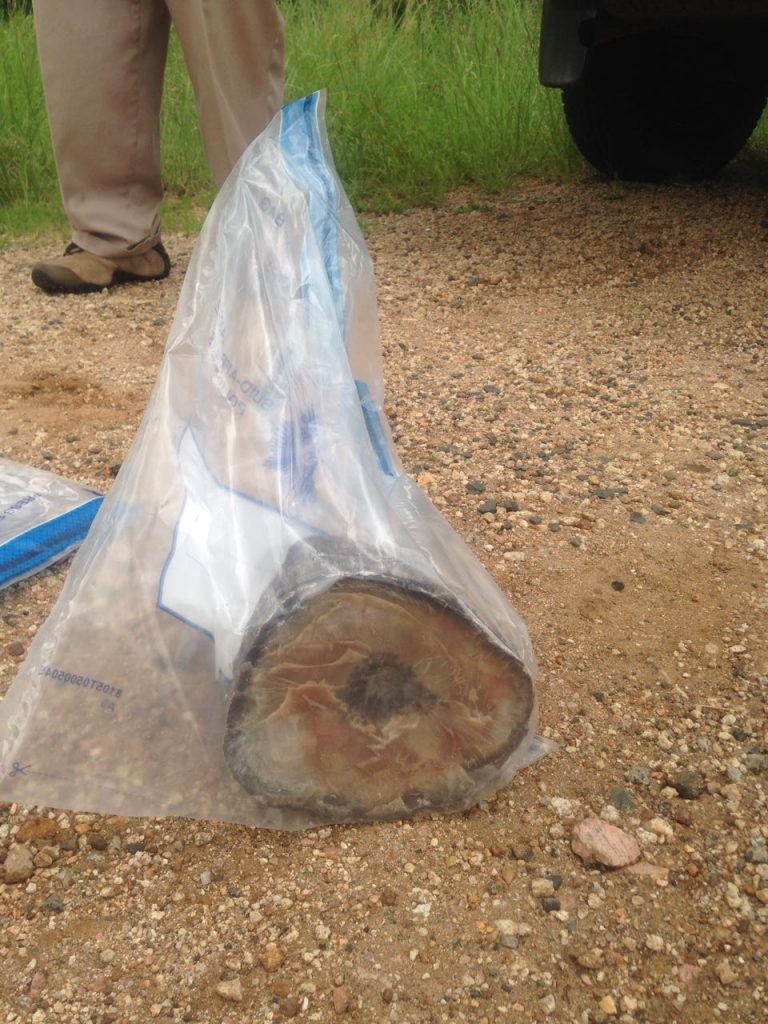Onward Muchangowa was identified as a key link in the supply chain to buyers from multiple rhino horn syndicates during the course of police investigations.
Limpopo director of public prosecutions Ivy Thenga is considering another rhino-poaching sentence review after Onward Muchangowa was sentenced to eight years imprisonment this week on rhino poaching charges and conspiracy to sell horns.
This comes after the National Prosecuting Authority (NPA) announced last week that it was drafting legal papers to appeal the lenient sentences sibling serial rhino poachers Nikolaas and Gideon Van Deventer received in May this year.
In January 2017, Muchangowa and the Van Deventers were arrested by members of the Limpopo Endangered Species Unity in Makhado after a tip-off that they were trying to sell rhino horns in the area.
During their respective trials, DNA forensic evidence linked the horns found at the scene to a rhino and her calf killed at the Witpoort farm, Dunhoven, just two days before their arrest.
At the Giyani magistrate’s court on Tuesday, Muchangowa was sentenced to seven years on count one for conspiracy to commit rhino poaching, eight years on count two for rhino poaching, acting in common purpose with the Van Deventers, and five years on count three for the joint possession of two rhino horns, which were thrown from their vehicle during a police pursuit and later recovered by investigators.
Under the Limpopo Nature Conservation Act, each count carries a maximum fine of R250 000 or 15 years imprisonment. Muchangowa was denied bail and remained in custody for almost six years before sentencing.
 One of the rhino horns of a rhino cow DNA forensics was able to prove the trio killed at the Witpoort farm Dunhoven, belonging to a Mr Bothma.
One of the rhino horns of a rhino cow DNA forensics was able to prove the trio killed at the Witpoort farm Dunhoven, belonging to a Mr Bothma.
As repeat rhino poaching offenders sentenced on multiple charges, Nikolaas van Deventer is serving 15 years and his brother Gideon 10 years.
Last week, Gideon van Deventer was sentenced to an additional eight years for a 2014 illegal weapons case that was improperly struck from the roll.
Prosecutor Norman Makhubela said Muchangowa was identified as a key link in the supply chain to buyers from multiple rhino horn syndicates during the course of police investigations.
“The SAPS [South African Police Service] managed to connect the dots that showed he was a level three operator in the networks, operating as a poaching organiser and distributor of horns to buyers in Pretoria and other locations. The buyers would then smuggle the horns to Asian countries like Vietnam and China,” Makhubela said.
A police forensic data analyst testified in court about the incriminating evidence found on Muchangowa’s cell phone, including pictures of rhino horns being weighed on scales and offered to buyers by the kilogramme.
“Onward Muchangowa even advertised horns for sale to members of secret whatsapp groups where there were at times as many as seven or eight people online wanting to buy rhino horns” Makhubela said.
In aggravation of sentence, the South African National Parks’ lead investigator, Mario Scholtz, provided testimony about the current state of rhino poaching in the country, the importance of black and white rhino economically to tourism, their contribution to biodiversity, and the financial implications of poaching on the rhino population.
I asked the court to sentence Muchangowa to the maximum 45 years, 15 years plus 15 years plus 15 years,” Makhubela said. “However, the magistrate sentenced Muchangowa to less than the maximum, and ruled the sentences on count one and count three will run concurrently with count two, which amounted to an effective eight years imprisonment.”
In mitigation, Muchangowa’s defence counsel argued that he had been in custody for nearly six years, he was married and this was his first offence.
[/membership]